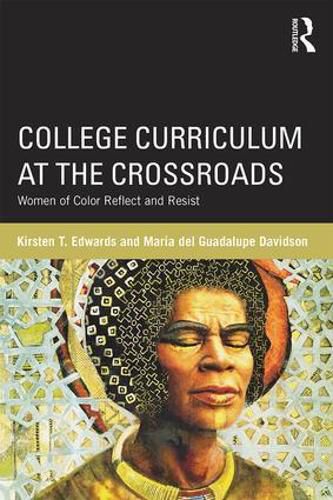Readings Newsletter
Become a Readings Member to make your shopping experience even easier.
Sign in or sign up for free!
You’re not far away from qualifying for FREE standard shipping within Australia
You’ve qualified for FREE standard shipping within Australia
The cart is loading…






College Curriculum at the Crossroads explores the ways in which college curriculum is complicated, informed, understood, resisted, and enriched by women of color. This text challenges the canon of curriculum development which foregrounds the experiences of white people, men and other dominant subject positions. By drawing on Black, Latina, Queer, and Transnational feminism, the text disrupts hegemonic curricular practices in post-secondary education. This collection is relevant to current conversation within higher education, which looks to curriculum to aid in the development of a more tolerant and just citizenry. Women of color have long theorized the failures of injustice and the promise of inclusion; as such, this text rightly positions women of color as true experts in the field.
Across a variety of approaches, from reflections on personal experience to application of critical scholarship, the authors in this collection explore the potency of women of color’s presence with/in college curriculum and emphasize a dire need for women of color’s voices at the center of the academic process.
$9.00 standard shipping within Australia
FREE standard shipping within Australia for orders over $100.00
Express & International shipping calculated at checkout
College Curriculum at the Crossroads explores the ways in which college curriculum is complicated, informed, understood, resisted, and enriched by women of color. This text challenges the canon of curriculum development which foregrounds the experiences of white people, men and other dominant subject positions. By drawing on Black, Latina, Queer, and Transnational feminism, the text disrupts hegemonic curricular practices in post-secondary education. This collection is relevant to current conversation within higher education, which looks to curriculum to aid in the development of a more tolerant and just citizenry. Women of color have long theorized the failures of injustice and the promise of inclusion; as such, this text rightly positions women of color as true experts in the field.
Across a variety of approaches, from reflections on personal experience to application of critical scholarship, the authors in this collection explore the potency of women of color’s presence with/in college curriculum and emphasize a dire need for women of color’s voices at the center of the academic process.